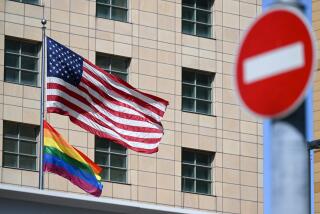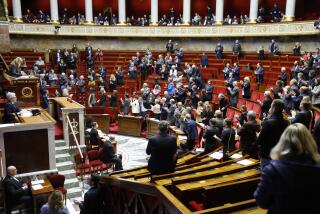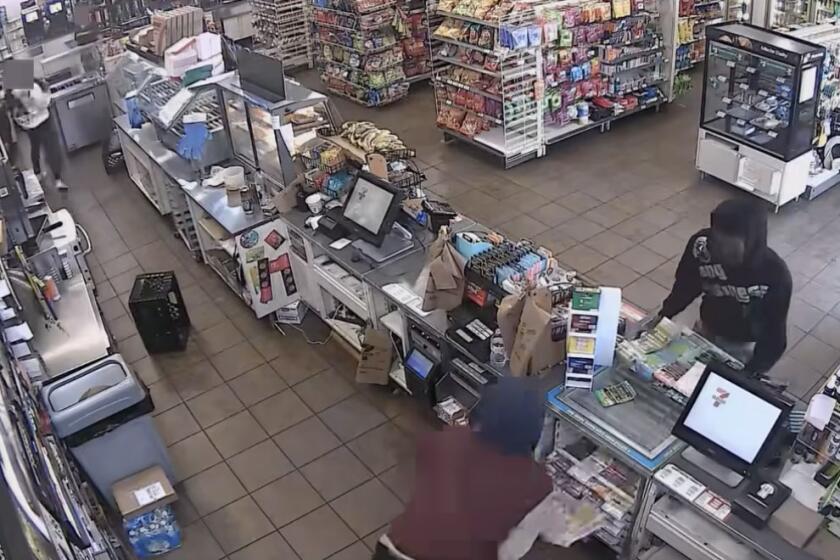This Isn’t Patriotism
‘WE WERE not Democrat or Republican on that horrible day. We were not liberal or conservative. We were Americans, by God!” As it happens, those sentences appeared in the San Diego Union-Tribune on Sept. 13, 2001, but you could see the same thing everywhere you looked in the days and weeks after 9/11.
For a moment, it really did look as if everything was going to be different. “Sept. 11 made it safe for liberals to be patriots,” George Packer wrote in the New York Times, as many of them found themselves hanging flags and making other unfamiliar gestures.
Thoughtful liberals denounced the “one-eyed left” — as Todd Gitlin describes them — who called the attacks payback for American crimes.
Thoughtful conservatives recoiled at assertions by Jerry Falwell and Pat Robertson that the attacks were God’s punishment on abortionists, feminists, gays and the ACLU.
It couldn’t have lasted. “America Unites,” read the banner at Fox News in the days after the attack, but what it really meant was “Welcome aboard.” For the last 30 years, after all, conservatives have treated patriotism as their own gated community.
“Patriotic liberal” may not be an oxymoron, exactly, but it’s an unexpected collocation, like “dour Italian.” On Google, it’s outnumbered by “patriotic conservative” by 20 to 1. So the right took the liberals’ tentative displays of patriotic feeling as an admission that they had seen the error of their America-blaming ways — a sign, as David Brooks put it in the Daily Standard, that “the most reactionary liberals amongst us are capable of change.”
Yet liberals were hardly “rediscovering” patriotism; most of them had been deeply devoted to this nation all along. Even before the attacks, a large majority of Democrats described themselves as “very proud” or “extremely proud” to be an American — not quite as many as Republicans, to be sure, but still vastly more than the citizens of long-established nations such as Britain, France and Japan. Such unanimity isn’t usually the stuff of which wedge issues are made.
BUT SINCE the Vietnam War era, liberals have been wary about the displays and avowals that have always given American patriotism its singular character. “It is impossible to conceive a more troublesome or more garrulous patriotism; it wearies even those who are disposed to respect it,” Alexis de Tocqueville wrote in 1840. And Europeans ever since have marveled at our enthusiasm for showing our flag and expatiating on our national virtues — not just for the edification of foreigners but as a reproach to other Americans whose undemonstrativeness suggests a want of proper patriotic devotion.
It’s a curious characteristic of American patriotism, in fact, that most of us think we’re more patriotic than the next guy. In surveys, Americans greatly exaggerate the “patriotism gap,” dramatically underestimating the proportion of their countrymen who say they’re extremely patriotic. In a recent Fox News/Opinion Dynamics poll, two-thirds of us — and 80% of Republicans — claim to be more patriotic than the average American. In short, we like to think that patriotism is a lot more exceptional than it actually is.
So it’s no wonder that patriotic gestures are so often laced with partisan belligerence. Wearing an American flag in your lapel, the Wall Street Journal’s Peggy Noonan said approvingly a few years ago, is “a sign that says, ‘I support my country, and if you don’t like it, that’s too bad.’ ”
And since 9/11, Republicans have taken with high zest to depicting Democrats as lacking in patriotism.
True, Republican elected officials tend to avoid the p-word itself. Sometimes the charge is made obliquely; during the 2004 campaign, Vice President Dick Cheney volunteered on at least 30 occasions that he wasn’t challenging John Kerry’s patriotism, often repeating the point so it wouldn’t be lost on anybody. But President Bush and other Republican officials have made the message clear with language like “undermining troops in the field,” “making politics the bottom line in the war on terror,” “encouraging our enemies” and the recent “Defeatocrats.”
And Republicans have been able to slough off Democratic suggestions that real patriotism might not include passing wartime tax cuts for the rich or slighting domestic security needs. How could Republicans be unpatriotic when the rhetoric of patriotism is theirs alone to deploy?
Still, it’s striking how formulaic and awkward that rhetoric is coming to sound. It may be a wholly new type of war that we’re watching on TV, but the score often sounds as if it were taken from “The Green Berets” — or maybe from “Watch on the Rhine,” to listen to the administration’s recent talk about “fascism” and “appeasers.”
Rhetorical gestures take on new meanings when their connection to reality frays. Rebaptizing sauerkraut as “liberty cabbage” during World War I was a hysterical overreaction to a real enemy; rebaptizing french fries as “freedom fries” during the buildup to the Iraq war was a bratty swipe at an ally with reservations about the Iraq invasion, not to mention at the Roquefort-sniffing “liberal elite” that shared them.
You hear the same disconnect in the way people use “appeaser,” “defeatist,” “aid and comfort,” “America-haters” and the like. The terms are meant to conjure up the spectral targets of patriotic bile in earlier eras — traitors, fifth columnists, subversives and radicals who harbored alien allegiances. But it takes a febrile imagination to see those shades in the Democrats whose subversion is confined to doubting whether throwing more dog tags at Iraq will give terrorists in London or Madrid second thoughts about mounting new attacks.
POLITICAL ATTACKS that sounded sinister in the McCarthy years now sound merely outlandish, as conservatives try to explain liberals’ lack of patriotism as just another one of those blue-state lifestyle traits, like an aversion to Lynyrd Skynyrd or macaroni and cheese. Writing shortly after the 9/11 attacks, the National Review’s John O’Sullivan explained that liberals’ anti-Americanism was the reaction of snobs who believed that “the patriotism of ordinary people is something simplistic, vulgar and shameful,” which is why liberals are more comfortable taking the side of “medieval Islamists” than of “a hard-hat construction worker or a suburban golfer in plaid pants.”
You can’t trivialize love of country more than that. If liberals are capable of bailing out on patriotism simply because it’s tacky, how strong a hold could it have on any of us?
But then patriotism has never been so low-maintenance as now. Time was when “supporting the troops” obliged you to buy war bonds or go out on scrap drives. Now you merely have to slap a bumper sticker on the back of your Hummer. And even for the able-bodied, it’s enough to support the troops from afar — you don’t see conservative young women out in the streets handing out white feathers as emblems of cowardice to men who aren’t in uniform.
The less it costs to proclaim yourself a patriot, the less someone else has to do to be accused of being unpatriotic — it’s enough that he questions the wisdom of a policy or leaves his lapel pin on his other suit. That isn’t how it was going to be.
More to Read
Start your day right
Sign up for Essential California for news, features and recommendations from the L.A. Times and beyond in your inbox six days a week.
You may occasionally receive promotional content from the Los Angeles Times.






